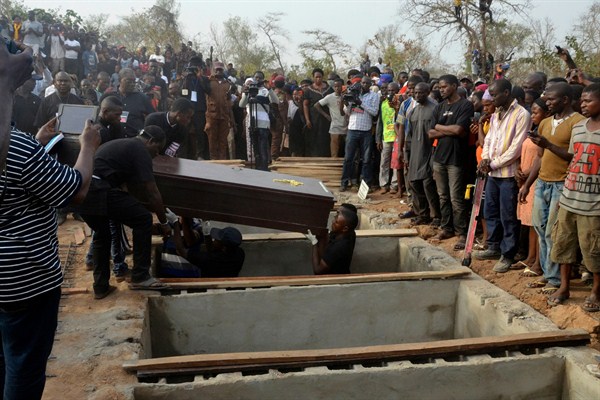After surrounding the villages at dawn, the militias stormed in, armed with machetes and firearms. As Reuters later reported, the “gunmen left the charred bodies of women and children smoldering in their homes.”
The attack on two villages in central Mali in March, in which 170 people were reportedly killed, was shocking enough to generate international headlines. But beyond the grisly details were its seemingly stark ethnic dimensions. The militias were made up of members of the Dogon ethnic group, which is primarily pastoralist. The victims in the two villages were mostly members of the Fulani ethnic group, semi-nomadic herders who are mainly Muslim and had been accused by the militias of supporting Islamist extremists operating in the area.
This kind of violence involving communal militias, which are also often referred to as ethnic militias or “identity militias,” is increasingly common not only in Mali but in other parts of sub-Saharan Africa, from Nigeria to Ethiopia. Yet with a few exceptions like the March attack, this bloodshed fails to register outside the region, where most attention focuses on the destabilizing effects of terrorism perpetrated by Salafi-jihadi groups that Western countries have vowed to defeat.

